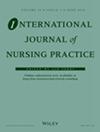Learning With Fun: The Effect of Flipped Learning and Escape Room Method on Nursing Students' Infection Control Knowledge and Learning Skills
Abstract
Background
Flipped learning and escape room (gamification) are among the innovative teaching strategies frequently used in interactive education methods today, focusing on problem-solving learning. These methods are important in promoting achievement by taking responsibility for learning.
Objectives
The study aimed to evaluate the effect of flipped learning and the escape room method on nursing students' knowledge and skill learning about infection control.
Materials and Methods
The study was a randomized controlled trial with open-label pretest-posttest. The research was conducted with 76 students in the experimental and control groups. In the study, while the experimental group students were taught using the flipped learning method, which is an effective way of learning outside the classroom, their learning was reinforced with gamification using the escape room method. These teaching methods also encouraged students to take responsibility for their own learning. Data were collected by administering the ‘Characteristics Form for the Student Group’, the ‘Knowledge Test on Infection Control Measures’ and the ‘Self-Directed Learning Skills Scale’.
Results
The post-test and follow-up test knowledge scores of the experimental group are statistically significantly higher than those of the control group (p < 0.001), and the difference has a high effect (d = 4.15). When the total score and all sub-dimensions of the Self-Directed Learning Skills Scale were analysed, a significant increase was found between the pretest and posttest scores of the experimental group compared with the control group (p = 0.003; p = 0.023; p = 0.023; p = 0.001; p = 0.049; p = 0.033; p < 0.05).
Conclusion
The study showed that flipped learning and escape room methods significantly improved nursing students' knowledge and skills related to infection control. Students' self-learning ability, taking responsibility and teamwork skills were strengthened.
Trial Registration: ClinicalTrials.gov identifier: NCT06670469.


 求助内容:
求助内容: 应助结果提醒方式:
应助结果提醒方式:


